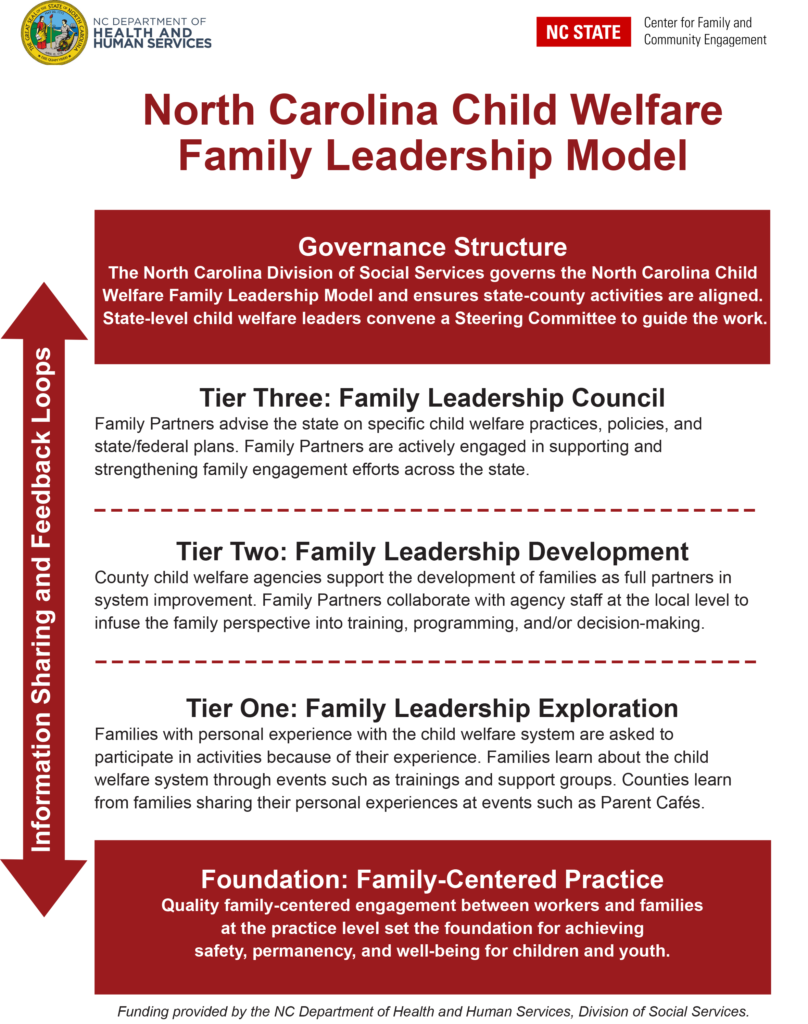Family Leadership Model
The North Carolina Family Leadership Model is a framework to help human service organizations improve services. The Model provides a blueprint for agencies to access, engage, and utilize family voice and build families as leaders. Through knowledge-sharing and trust-building activities between the agency and the people they serve, agencies become more transparent and responsive to the needs of their community. Individuals with lived experience become full partners in an agency’s operation, contributing in ways that help the organization achieve better outcomes. Watch this short video to learn more.
_____________________________________________________________
The Center for Family and Community Engagement (CFACE) is proud to partner with North Carolina Child Welfare in its family engagement efforts. Since 2016, CFACE has partnered with the Division of Social Services (DSS) to ensure that families have a seat at the table to address system improvements.
Please click on the following YouTube links to hear Child Welfare Family Advisory Council members share their stories and explain the benefits of joining the Council as a Family Partner.
_____________________________________________________________
“Family Partners make sure the work we do, the words we use, and the processes we create make sense to those outside of child welfare. They are an essential partner in improving the system that serves North Carolina’s most vulnerable children and their families.”
Lisa Tucker Cauley
Senior Director of Child, Family and Adult Services
North Carolina Division of Social Services
The North Carolina Child Welfare Family Leadership Model (the Model) was developed with families. The Model establishes structured opportunities to engage child welfare families and develop them as leaders in the child welfare system. Designed to meet state and federal practice and policy expectations, the Model’s three tiers provide a framework to access, engage, and utilize family and youth voice in all aspects of child welfare services. The tiers encourage family leadership exploration, promote family leadership development, and establish a state family leadership council. The Model is governed by state leadership and includes technical assistance – by state, university, and Family Partners – to support readiness activities, training, implementation, and state-county alignment. Embedded throughout the Model are information sharing strategies and feedback loops.

Beginning with strategic planning during North Carolina’s Program Improvement Plan, families helped DSS develop a multi-tiered approach to involving family voices in child welfare practice, policy and program decisions. The North Carolina Child Welfare Family Leadership Model encourages family engagement as an active, ongoing collaboration with families and youth that recognizes them as full partners in effecting practice and system change.